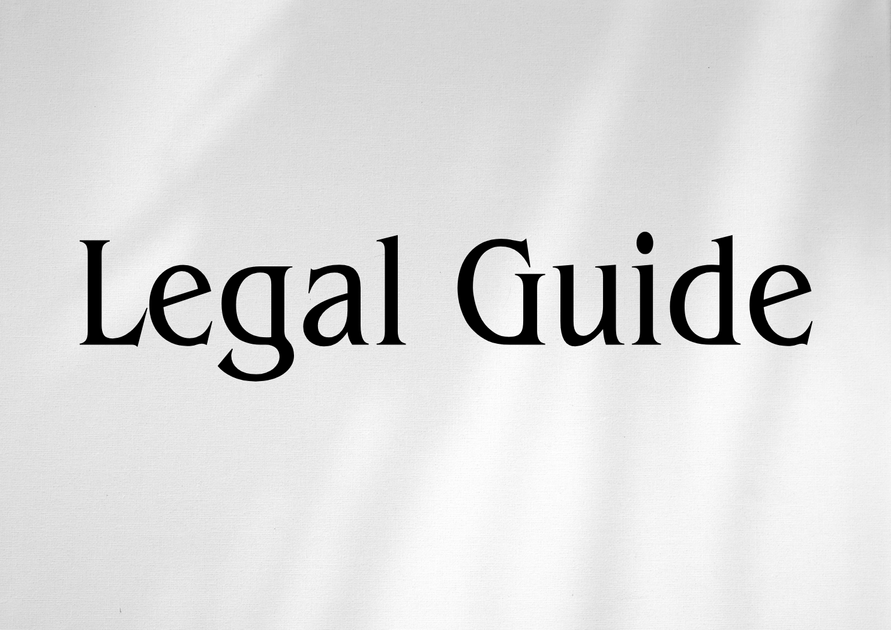Introduction
As the UAE accelerates its vision of establishing itself as a premier global hub for business and investment, compliance with corporate governance frameworks holds unprecedented importance. In 2025, a suite of federal laws and regulatory directives has been updated or introduced, aiming to strengthen transparency, accountability, and investor confidence in the corporate ecosystem. The consequences of non-compliance with these rigorous governance rules have become more pronounced, with both monetary and reputational penalties serving as strong deterrents. This article delivers a comprehensive, consultancy-grade analysis of the penalties associated with non-compliance under UAE corporate governance laws, referencing Federal Decree-Law No. 32 of 2021 (the primary Companies Law), Cabinet Resolution No. 3 of 2023, and related ministerial guidance. It offers pragmatic insights, current legal comparisons, and practical risk management strategies for business leaders, GCs, compliance officers, and C-suite executives.
In view of recent legal updates issued by the UAE Ministry of Justice and other government bodies, understanding these obligations and the accompanying penalties is essential for all corporate actors operating within or through the UAE. This guide not only unpacks the statutory requirements and enforcement mechanisms but also provides actionable recommendations to foster compliance and maintain a competitive edge in the evolving UAE business landscape.
Table of Contents
- Legal Framework: UAE Corporate Governance Rules
- Principal Provisions and Governance Obligations in 2025
- Enforcement Mechanisms and Penalties for Non-Compliance
- Penalty Comparison: Old vs New Corporate Governance Regime
- Case Studies and Hypothetical Scenarios
- Organizational Risks and Strategic Compliance Best Practices
- Conclusion and Forward-Looking Perspective
Legal Framework: UAE Corporate Governance Rules
Foundational Statutes and Recent Regulatory Reforms
The backbone of corporate governance regulation in the UAE is found in Federal Decree-Law No. 32 of 2021 on Commercial Companies (as amended by subsequent resolutions in 2023 and 2024). This law, supplemented by sector-specific rules and Cabinet Resolutions, outlines the duties of directors, obligations of top management, and operational standards for both onshore and free zone companies.
Key sources for practitioners include:
- Federal Decree-Law No. 32 of 2021 (Companies Law)
- Cabinet Resolution No. 3 of 2023 (concerning governance systems)
- Securities and Commodities Authority Corporate Governance Guide (2022/2023) (for listed entities)
- Ministerial Circulars from the UAE Ministry of Justice
These rules align UAE governance with international best practices, while also considering regional specificities relevant to local and foreign investors.
Scope of Application
Corporate governance rules apply to a broad array of companies, including:
- Public joint stock companies (PJSCs)
- Private joint stock companies
- Limited liability companies (LLCs)
- Companies listed on UAE stock exchanges
- Certain free zone companies, especially those regulated by ADGM, DIFC, and DMCC (subject to variations)
Certain government-owned, strategic sector, or licensed free zone entities may benefit from exemptions or sector-specific governance codes.
Principal Provisions and Governance Obligations in 2025
Key Governance Duties and Compliance Requirements
Under the 2025 regulatory regime, the following core governance obligations are most relevant for compliance:
- Establishment of a Board of Directors with clear role segregation and fiduciary duties (Art. 144–161, Companies Law)
- Internal Control Systems: Obligations to maintain adequate internal controls, risk management, and auditing processes (per Cabinet Resolution No. 3 of 2023 Art. 10, SCA Governance Guide)
- Disclosure and Transparency: Timely public disclosure of material information, annual financial statements, and beneficial ownership (Art. 26, 27, 237, Companies Law)
- Shareholder Rights: Protections to ensure equitable treatment of all classes of shareholders (Art. 33–44, Companies Law)
- Preventing Conflicts of Interest: Formal policies for conflict management, related party transactions, and director independence (Cabinet Resolution No. 3 of 2023, SCA Governance Guide)
Other obligations include mandatory annual general meetings, statutory recordkeeping, board committee structures (such as audit and risk committees), and maintaining up-to-date company registers.
Recent Developments and Key Changes in 2025
The year 2025 has seen continued regulatory tightening, with notable changes such as:
- Increased financial penalties for misreporting, audit failures, and breaches of disclosure rules
- Enhanced director liability for personal misconduct, gross negligence, or willful non-compliance
- Stricter timelines for filing and public disclosures
- More frequent regulatory audits and random inspections
These updates reflect the UAE’s alignment with OECD and international financial standards, and aim to boost global investor confidence.
Enforcement Mechanisms and Penalties for Non-Compliance
Overview of Regulatory Supervision
Corporate governance is monitored and enforced by multiple bodies, notably the UAE Ministry of Economy, the Securities and Commodities Authority (SCA), and the Central Bank where applicable. Breaches are identified through routine audits, complaints, whistleblower reports, and information from third parties. Regulatory actions are guided by the powers granted under Federal Decree-Law No. 32 of 2021 and related resolutions.
Types of Penalties Imposed
The UAE legal framework distinguishes between civil, administrative, and—in some egregious cases—criminal penalties. The range and quantum of penalties have escalated in recent years, particularly for repeated or willful violations. Common penalties include:
- Monetary Fines: Ranging from AED 10,000 to AED 10 million, depending on the severity and nature of the violation (see Companies Law, Arts. 163, 348, 356)
- Suspension or Removal: Potential suspension of board members or senior officers. In certain cases, Court-ordered removal from office.
- Company Suspension or Strike-Off: Temporary suspension of business operations or, for repeated non-compliance, company deregistration and liquidation proceedings.
- Public Censure: Issuance of warnings and publication of violations on regulatory portals, impacting reputational standing
- Criminal Referrals: For offences involving fraud, falsification of records, financial crimes, or concealment of beneficial ownership, criminal prosecution may ensue with penalties including imprisonment and larger fines
Illustrative Penalty Table: Main Infractions and Sanctions (2025)
| Infraction | Statutory Reference | Penalty Range | Other Sanctions |
|---|---|---|---|
| Failure to maintain adequate internal controls | Art. 161, Companies Law; Cab. Res. No. 3/2023 | AED 50,000–500,000 | Public censure, board warnings |
| Omission of material disclosure | Art. 237, Companies Law; SCA Guide | AED 100,000–1,000,000 | Suspension, de-listing (for PJSCs) |
| Related-party transaction violations | Art. 153, 154, Companies Law | AED 10,000–200,000 | Restitution, removal of director |
| Failure to hold AGM | Art. 93, Companies Law | AED 50,000–200,000 | Suspension of company operations |
| Board member gross negligence or misconduct | Art. 162, Companies Law | AED 200,000–2,000,000 | Personal liability, damages |
| Non-cooperation during regulatory inspection | Art. 348, Companies Law | AED 20,000–200,000 | Further compliance reviews |
Suggested visual: A flow diagram illustrating the regulatory investigation-to-penalty process, from detection (audit, tip-off) to final imposition of sanctions.
Penalty Comparison: Old vs New Corporate Governance Regime
The UAE’s regulatory approach to corporate governance has undergone significant enhancement. The comparison below summarizes the progression in penalty structures and enforcement mechanisms from pre-2021 to the current 2025 regime:
| Aspect | Pre-2021 Regime | 2025 Regime (Current) |
|---|---|---|
| Penalties for Disclosure Breaches | AED 20,000–100,000; usually administrative warnings only | AED 100,000–1,000,000; public censure and possible criminal referral |
| Obligation on Directors | General fiduciary duties, rarely enforced | Defined duties, with personal liability for negligent acts |
| Enforcement Frequency | Sporadic, usually reactive (upon complaint) | Proactive, with scheduled annual reviews and audits |
| Statutory Guidance | Fragmented, less prescriptive | Detailed, clear procedures and reporting timelines |
| Beneficial Ownership Requirements | Not clearly mandated | Mandatory, with severe penalties for false reporting |
Suggested visual: “Penalty Evolution Timeline” chart showing the escalation of fines and new types of sanctions since 2021.
Case Studies and Hypothetical Scenarios
Case Study: Failure to Disclose Material Related Party Transactions
Scenario: A UAE-based LLC entered into a substantial service contract with a close affiliate of one of its directors. The director did not declare the conflict to the board or shareholders, and the related-party transaction was omitted from annual filings.
Actual Risks and Outcome: During routine SCA review, the omission was detected. Penalties included a fine of AED 200,000, a directive for public disclosure, and temporary suspension of the director for 12 months. The company was required to revise its internal policies and conduct mandatory director training as part of a remediation plan. In case of repeated breaches, criminal referral may apply under Companies Law Article 162.
Hypothetical Example: Delayed Annual General Meeting (AGM)
Scenario: A mid-sized PJSC failed to hold its AGM within the statutory deadline due to internal disagreements. Shareholders lodged complaints with the Ministry of Economy.
Legal Analysis: Under Article 93 of Companies Law, the delay constitutes a clear infraction. The Ministry imposed a fine of AED 150,000 and compelled immediate convening of the AGM. Continuation of such breaches could result in a court-mandated dissolution of the board and appointment of a government administrator.
Practical Insights from Case Law and Regulatory Practice
- Regulatory bodies prioritize timely, voluntary self-disclosure and remediation. Companies demonstrating transparency often face reduced penalties.
- Repeated or willful breaches lead to cumulative penalties, and persistent non-cooperation can trigger suspension or drastic corrective actions, such as forced liquidation.
- Directors and officers are personally liable for gross negligence and fraudulent acts, regardless of company indemnities.
Organizational Risks and Strategic Compliance Best Practices
Risks of Non-Compliance
- Reputational Damage: Public disclosure of company infractions can undermine investor and market confidence.
- Financial Loss: Fines, suspension, and legal fees can erode profitability and hinder business continuity.
- Legal Exposure: Senior executives and board members exposed to personal liability and criminal prosecution.
- Operational Disruptions: Possible suspension or strike-off, impacting contractual relationships and ongoing operations.
Compliance Strategies and Best Practice Recommendations
- Establish dedicated governance and compliance functions, staffed by professionals with up-to-date knowledge of UAE law
- Implement robust internal control systems and annual external audits in line with UAE regulatory expectations
- Utilize comprehensive compliance checklists to ensure all statutory requirements are met
- Provide periodic board and executive training on legal duties and emerging risks
- Carry out frequent self-assessments and leverage technology for compliance monitoring
- Develop whistleblowing mechanisms and incident escalation procedures
Suggested visual: “UAE Corporate Governance Compliance Checklist” summarizing key controls, documentation, and timelines for executives and compliance officers.
Conclusion and Forward-Looking Perspective
The evolving regulatory landscape in the UAE underscores a decisive shift towards stricter enforcement and proactive supervision of corporate governance practices. The penalties for non-compliance are no longer merely a cost of doing business—they now represent substantial legal, financial, and reputational threats. Looking ahead, continued updates to UAE law are likely, in line with international best practices and the nation’s vision to remain an investment destination of choice.
For business leaders, company secretaries, and compliance professionals, the imperative is clear: proactive compliance is not only advisable, but essential. Engaging specialised legal counsel, consistently monitoring regulatory developments through official UAE Government portals, and investing in robust compliance infrastructure will serve as the strongest safeguards against the heightened risks of penalties. By embedding a culture of governance and accountability, UAE companies can secure sustainable growth and preserve stakeholder trust in a rapidly advancing regulatory environment.




